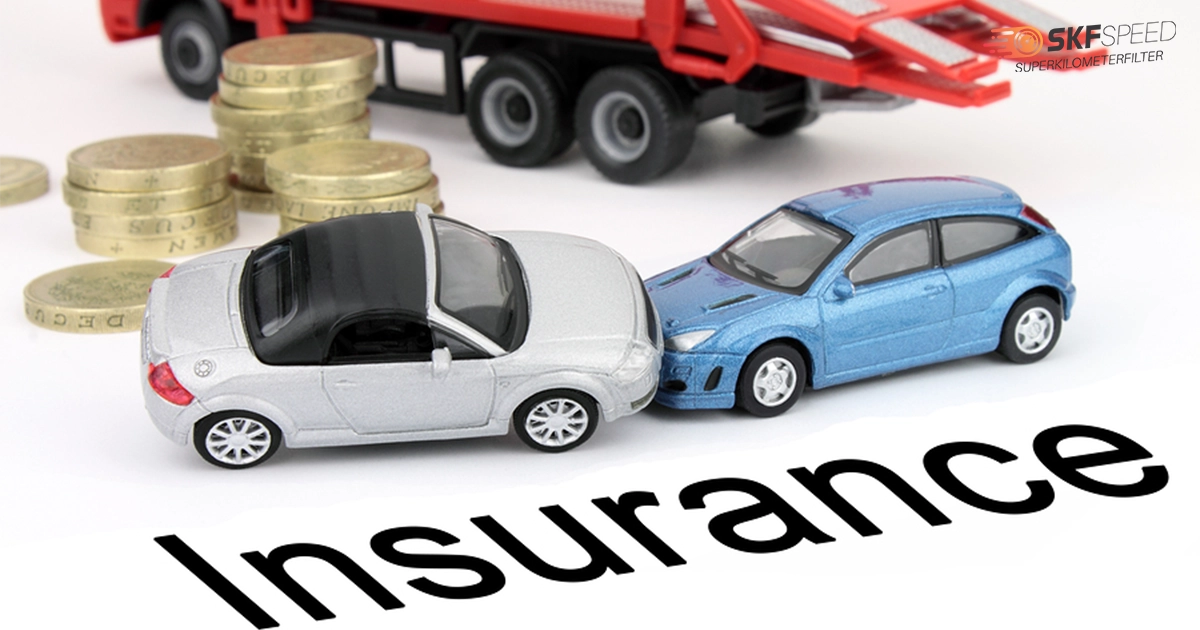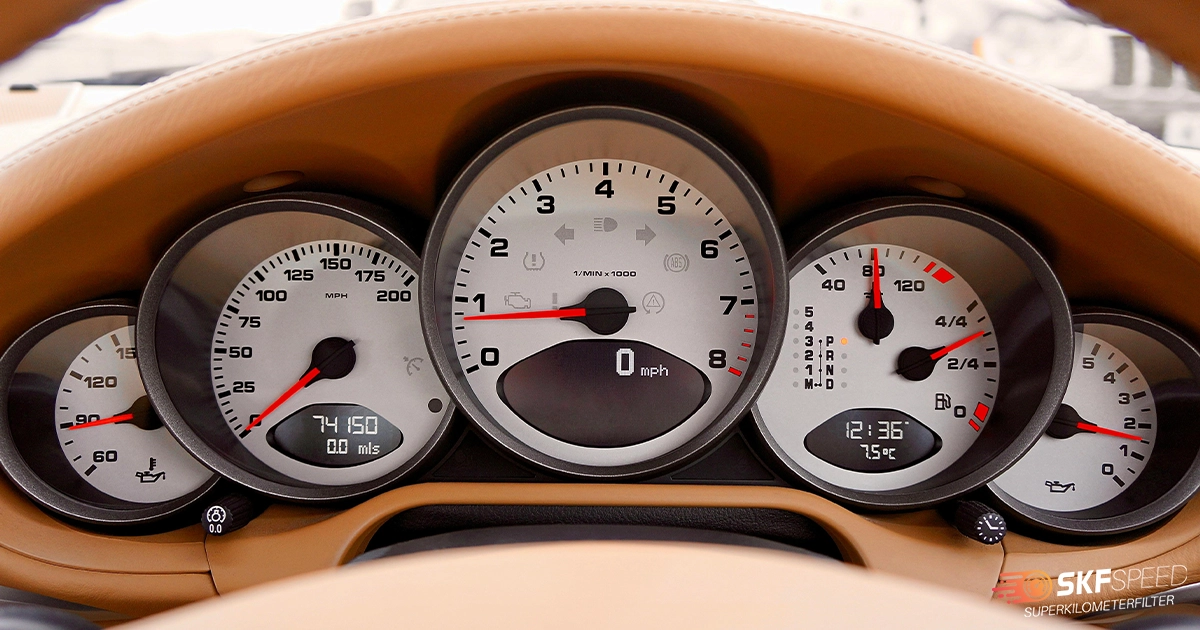
Car insurance mileage brackets are limits of annual mileage that insurance companies use to estimate the risk level and calculate the premium. The lower the mileage, the higher the chance you get the best discount, while high mileage is mostly associated with high risks and insuring such an automobile is more expensive. According to the Federal Highway Administration, U.S. drivers’ odometer records 13,662 miles on average. This comes from very general statistics, and it is about average drivers.
However, accumulated mileage greatly depends on an individual’s occupation, driving habits, age, location and many other factors. Average annual mileage also differs from state by state. It is 21,589 miles in Wyoming, and it is 9,548 miles in New York. Mostly, such a gap explains that in some states, like New York, there is a large public transport system, while in some states, there is no need for this, and the main way for transportation is driving private automobiles.
Yearly mileage data is closely tied to the mileage range, which in turn determines the insurance premiums. In the following paragraphs, we discuss all the aspects that come to mind when discussing mileage limits and the cost per mile.
Car insurance mileage brackets are a special kind of categorizing mileage data, which lets insurers assess risk level and calculate the premium. It is generally divided into several categories and is named from lowest to highest. The following is a list of annual mileage ranges:
Depending on their lifestyle and driving habits, individuals fall into different categories. For example, people with the lowest annual miles are the retired ones or the ones who work remotely. In some cases, the car is just the second one, luxurious or just a usual automobile, which is used very seldom. On the contrary, recording a lot of annual miles indicates that the individual uses the car for delivery service or relies on the automobile for long trips on a regular basis.
As you see, yearly miles have a decisive role in determining which bracket it falls into. Insurance companies use them to determine risks, set premiums, and determine discounts. In the following paragraph, we will discuss how mileage affects the rate.

Annual mileage is one of the important factors which insurance companies consider when calculating the premium. It is not surprising as driven miles are the direct indicator of how big the risk of the accident is. The probability of the accident is higher when you drive a lot, and lower when you drive less. According to the NHTSA, drivers who drive more than 20,000 miles annually are 20-40% more likely to be involved in accidents. So, it is why insurance premium is increasing proportionally.
The most obvious way to learn what your yearly mileage is and what car insurance mileage brackets you fall into is to make note of the odometer reading at the start of the year, then check again at the end of the year. Then you subtract two readings. Let’s calculate based on the example:
The starting reading: 30,000 miles
The ending: 42, 500 miles
So, the annual mileage 42,500-30,000, which is 12,500 miles.
There are also alternative methods for this, for example, note-making during one typical week and then multiplying one week’s mileage by 52, or tracking one typical month and multiplying it by 12.
Car insurance mileage brackets have a significant effect on the premium. The lower the range you fall, the bigger the chance of getting a discount. On the other hand, you should be ready to pay more, if your odometer records a lot of miles annually.
Yes, if you drive less than 10,000 miles annually, you can benefit from paying 5%-30% less for insurance than usual. Low-mileage policy is great for retired people who drive less or individuals who work from home. USAA, American Family Insurance, PEMCO, and Farm Bureau are the insurance companies that offer such discounts. Marketwatch researched the insurance rates for 35-year-old drivers who travel 5,000 miles per year and 20,000 miles per year. Let’s see how much one can save:
Minimum coverage
Company: USAA
Monthly cost for 5000 miles: $33
Monthly cost for 20,000 miles: $38
In 5 years, the potential savings are $300 for minimum coverage.
Full coverage
Company: USAA
Monthly cost for 5000 miles: $126
Monthly cost for 20,000 miles: $144
In 5 years, the potential savings are $1080 for full coverage.
The short answer is – Yes. As you are exposed to higher risks of accidents, you pay more if you drive more. However, it’s not solely about the risks of accidents. When your automobile is often on the road, it has more wear and tear, which means it costs more to repair.
Usually, high-mileage drivers are sales professionals, delivery drivers, and business travellers. Insurers increase the premium as annual miles increase, till 20,000 miles. After 20,000 miles the costs stabilize as all cars 20,000 + miles are considered already at high risk.
Pay-per-mile insurance is a type of usage-based insurance, and indicates the same: you pay exactly as much as you drive. If you decide to benefit from the plan, the most important thing you should consider is that your insurer will track you with a mobile application or plug-in device to estimate the number of miles you drive. Such insurance plans have their per-mile rate and base rate. If you drive less, and your accumulated mileage is less than average, this type of insurance plan would be a good alternative for you. You should also consider that regardless of the miles you drive, the insurer collects information about your driving habits, speed, and braking to calculate the premium. Let’s discuss the cost of insuring the automobile based on this plan.
Let’s take the Progressive insurance company as an example and calculate the pay per mile:
Base Rate: $40/month (A fixed monthly fee covering basic risk factors (age, vehicle, coverage)
Per-Mile Rate: $0.05/mile (charge for each mile driven)
Miles Driven: 450 miles/month
Monthly cost calculation: 40+(450×0.05) = $62.5
Annual cost: $62.5 *12= $750
Whatever plan you take, it’s crucial to report your genuine mileage accurately. If you don’t manage to report the accurate data, you will have problems with the insurer.

Most individuals buy mileage correction tools online to rollback existing mileage on the odometer to fit lower car insurance mileage brackets and pay less. Such tools are available widely, marketed as diagnostic/scanner tools. The purpose of rolling back the genuine odometer reading can be the following:
1. Save money on insurance;
2. Deceiving potential buyers and making them pay more;
Odometer Fraud is one of the biggest consumer frauds nowadays; it is an act of resetting, changing or disconnecting a vehicle’s odometer with the intent of changing miles. So, avoid misrepresenting mileage to avoid facing legal charges.
Unfortunately, many legal tools are often used for malicious purposes, especially those which perform flawlessly but are designed for absolutely ethical purposes.
The outstanding testing device on the market is the Mileage Blocker from Super Kilometre Filter.
Mileage blocker is an extraordinary device which lets anyone to stop kilometer recording process in the automobile. It performs flawlessly because it doesn’t leave any trace in other control units, so it is impossible to detect its performance. Undetectable performance is why the tool becomes handy for wrongdoers. Some individuals use the device unconstitutionally with a malicious purpose. Surely, the Mileage blocker is a legal testing tool, which performs greatly in a controlled environment and lets enthusiasts test the automobile without adding up miles.
Mileage blocker is a convenient tool for several reasons:
You can purchase it directly from the shop. The support team will answer the questions you might have.
Car insurance mileage brackets are crucial to consider when choosing insurance policies and companies that best meet your needs. Determine what type of driver you are, what your driving habits are, and how much time you spend on the road. So, think about it twice and make an informed choice.






Here you will find all the details about our company
Here you will find shipping and return related information
Here you will find information on all technical questions
Here you will find helpful information about installation